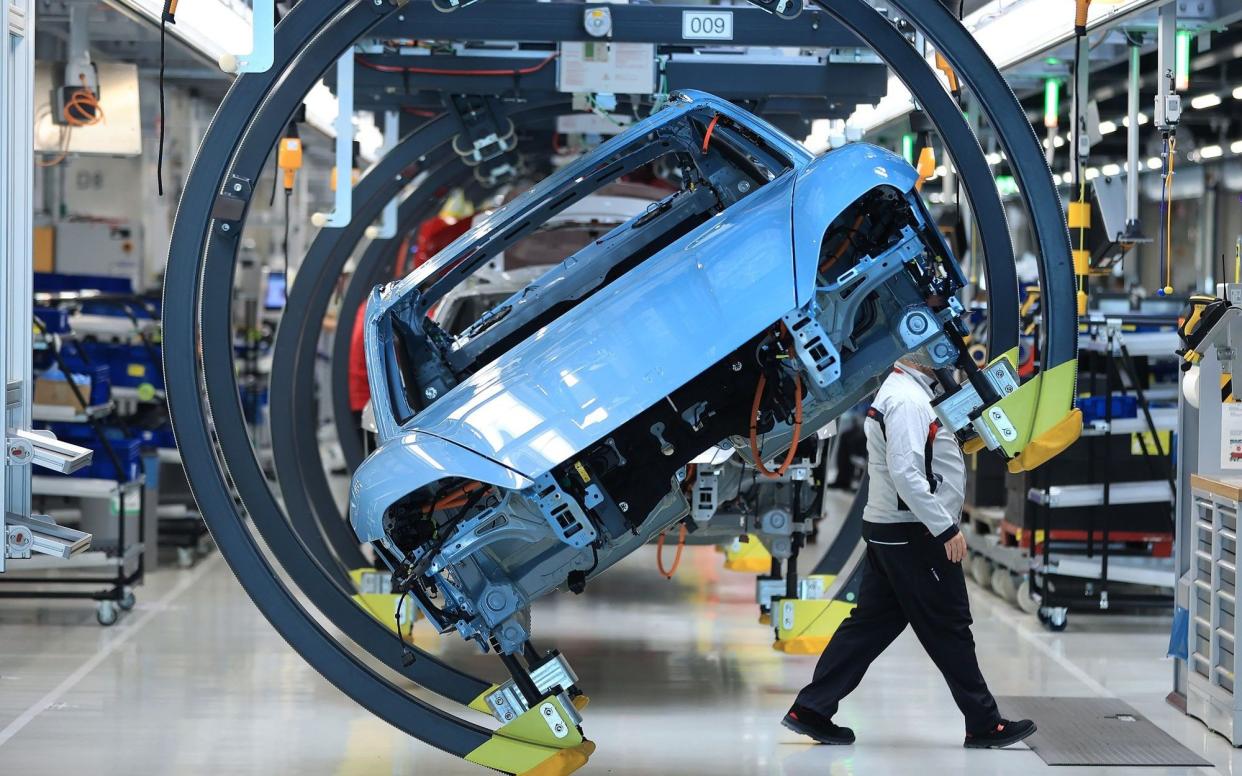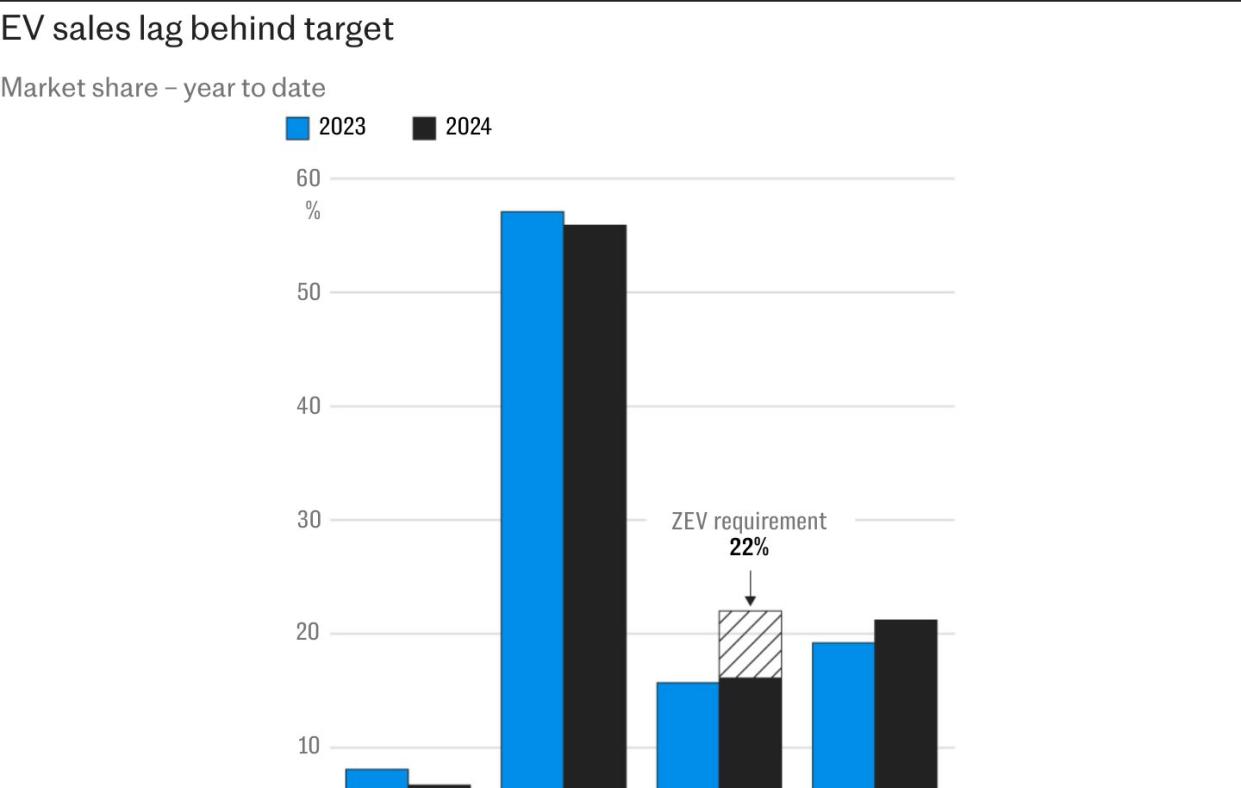Italy urges EU to pause petrol car ban or risk industry’s collapse

Italy has called for a review of the European Union’s 2035 petrol car ban amid fears it risked triggering the industry’s “collapse”.
Ministers from Giorgia Meloni’s government claimed the “absurd” policy was ideologically driven and required change to reflect the realities of the market.
There has been growing unease across the Continent about a slowdown in demand for electric vehicles (EVs).
There are also concerns that Europe’s car industry is falling increasingly behind manufacturers in China and the US, which have benefitted from a flood of government subsidies.
Last week, car giant Volkswagen warned it might close factories in Germany for the first time owing to issues such as high energy prices. This has prompted calls in some quarters for a rethink of tough EU climate goals which build up to a ban on internal combustion engine cars by 2035.
Gilberto Pichetto Fratin, the Italian energy minister, told Bloomberg: “The ban must be changed.”
Adolfo Urso, the industry minister, added: “In an uncertain landscape, which is affecting the German automotive industry, clarity is needed to not let the European industry collapse.
“Europe needs a pragmatic vision, the ideological vision has failed. We need to acknowledge that.”

He called for the targets to be reviewed early by the European Commission, which is responsible for drawing up the laws. Italy says it is not opposed to EVs but has argued that the transition to clean energy should involve other technologies as well.
Meanwhile, Volkswagen – Germany’s largest industrial employer and Europe’s top carmaker by revenue – has been hammered by rising power prices after the loss of cheap Russian gas in the wake of the invasion of Ukraine. The company has also been struggling with its push into electric cars.
Sales of EVs stalled in the first half of the year and the company delayed the US launch of its latest electric sedans indefinitely.
This year it revealed plans to invest up to $5bn (£3.82bn) in Tesla rival Rivian in an effort to catch up with its competitors.
Compounding matters is a worsening outlook for Germany’s economy, which is struggling to reverse a slump in its key manufacturing sector.


